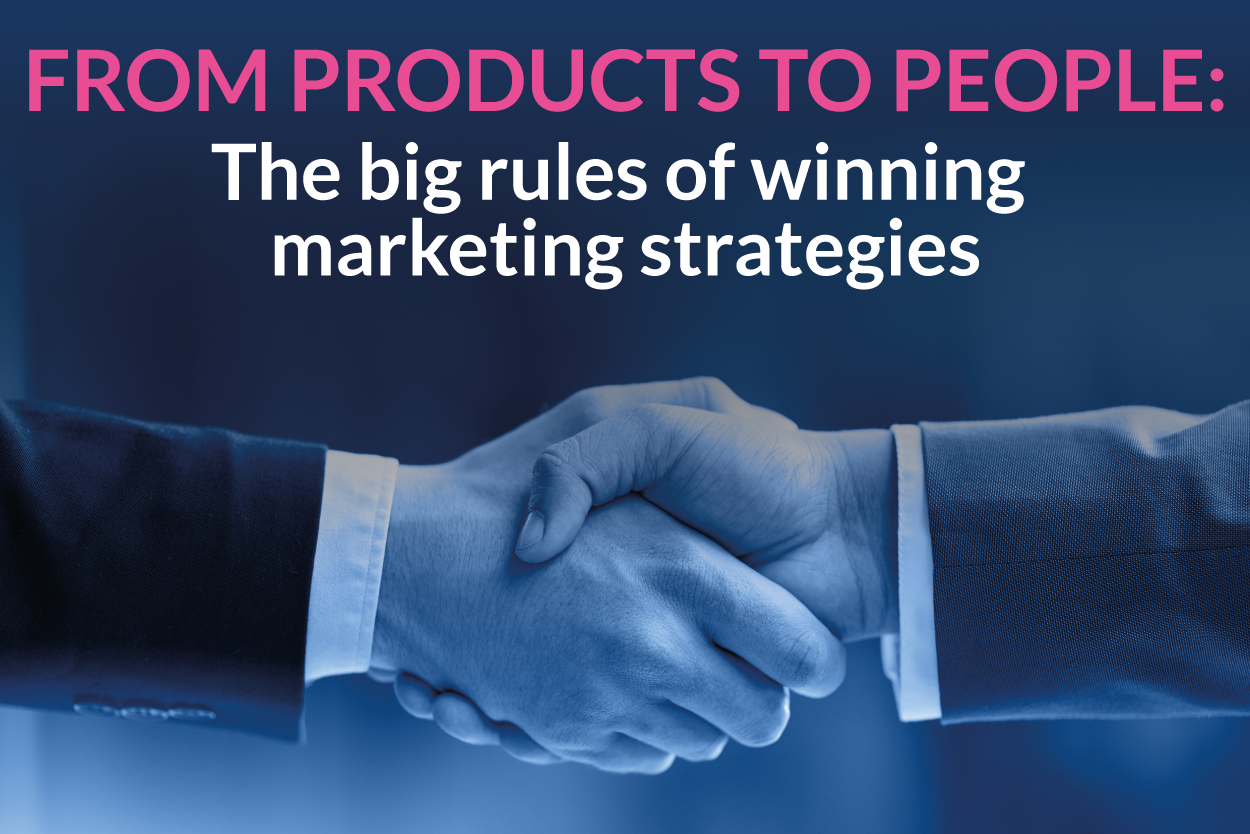From products to people: 5 tips for a winning marketing strategy
It’s not new that sticking to a product-centric strategy is like using a landline in the age of smartphones – outdated and ineffective. The landscape shifted a long time ago, but for some reason, some businesses within the property industry still resist abandoning the old-school product-centric approach in favour of embracing strategies that prioritise the customer and the human experience.
A product-centric strategy revolves around the product’s features, benefits, and capabilities. The assumption is that if the product is good enough, agents will naturally be drawn to it. However, this mindset is fundamentally flawed for several reasons:
- It neglects agents’ needs: This strategy often overlooks what agents truly need or want. You might have a stellar product, but if it doesn't align with the agent’s requirements, it becomes irrelevant.
- It’s lacking emotional engagement: Purchasing decisions are heavily influenced by emotions, even in a B2B context. Without this connection, it’s hard to foster loyalty or brand affinity.
- Low flexibility: A product-centric focus can make a company slow to respond to market changes, missing emerging trends and evolving customer preferences, which are happening constantly in this industry!
- Impersonal marketing: This strategy tends to treat clients as mere statistics rather than individuals with unique needs and preferences, reducing the overall effectiveness of your campaigns.
- Short-term focus: Emphasising the product often leads to short-term sales tactics rather than building long-term relationships, overlooking the importance of client retention and lifetime value.
- Overlooked value proposition: Focusing solely on product features means missing out on communicating the overall value and benefits that align with agents’ lifestyles and aspirations.
- Low competitiveness: In saturated markets, numerous similar products compete for attention. A product-centric approach fails to differentiate your brand on anything other than features, which can be easily replicated by competitors, leaving your product indistinguishable in the crowd.
- Missed brand storytelling: A product-centric strategy focuses too much on technical details, ignoring the narrative that could emotionally engage your target audience.
- Limited customer insights: Without understanding what drives agents, it's challenging to innovate or improve your offerings to better meet their needs.
- Ineffective communication channels: Agents today engage through diverse platforms and expect brands to meet them where they are, which requires a more nuanced and flexible approach
Ok, I’m making all those mistakes, so what can I do?
Transitioning to a customer-centric and human-centric strategy means prioritising the needs, emotions, and experiences of your clients.
Here’s why this combined approach is the future of effective marketing:
- Understanding the customer journey: You will gain insights into their journey, pain points, and desires. This allows you to create tailored marketing messages that address agents’ specific needs.
- Personalisation: Clients nowadays expect a personalised experience. Bespoke messages make customers feel valued and understood, fostering loyalty and increasing the likelihood of conversions.
- Building trust and emotional bonds: A human-centric approach emphasises empathy and emotional intelligence. When agents feel that you genuinely care about their experiences, emotions and needs, they are more likely to trust your brand and remain loyal.
- Creating memorable experiences: Beyond selling a product, focusing on meaningful interactions and experiences can significantly enhance client satisfaction. Whether it’s exceptional service, engaging storytelling or building a community, these experiences make your brand memorable.
- Adaptability and Innovation: A customer and human-centric approach keeps you attuned to market trends and client feedback. This flexibility allows you to innovate and adapt quickly, ensuring your product remains relevant and desirable.
Having a customer or human-centric approach in your marketing and advertising strategy can have incalculable benefits for your business. Some of them are higher levels of engagement that can lead to more conversion opportunities, increased loyalty and retention, competitive advantage, improved ROI and long-term relationships that build emotional connections and trust with prospects and clients.
The era of product-centric marketing has been over for a while. Embracing customer-centric and human-centric strategies is not just a trend, but a necessity for success in today’s market.
If you’re not sure how to navigate this transition, we’ll be happy to advise and help, ensuring your marketing efforts are impactful. Focus on what truly matters: in every estate or letting agency there are humans making decisions about your products and services.
Email us at lee@angelsmedia.co.uk or call us on 020 8663 4989 and we’ll be in touch!
